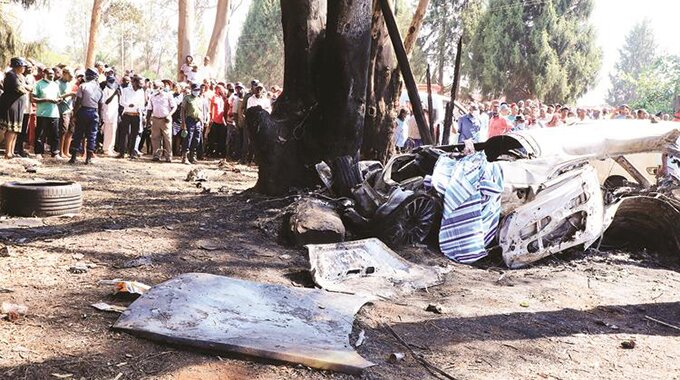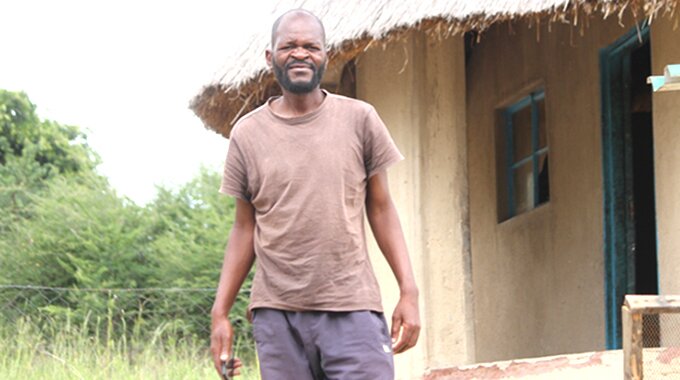The story of a makeshift maternity structure in Uzumba Maramba Pfungwe where women from an apostolic sect go to deliver, gives credence to Government’s recent call to strengthen health delivery systems starting with the grassroots.
While village midwives are as old as humanity, and they can handle reasonably well most normal births, it is only with the advent of modern aseptic facilities and a referral system that gets complicated births moved to hospitals that death of a mother or baby in childbirth has become so very rare.
This is why our Government since independence has made such a major effort to establish maternity clinics across the country, has encouraged women to seek pre-natal examinations and advice, and has set up a referral system that sees mothers likely to face serious complications to be doing so in a hospital.
So many of us might be quick to condemn the makeshift maternity ward in UMP.
But, for a variety of reasons, there is clearly a significant group of mothers who wish to use these facilities rather than the clinic system and so we have to figure out why, and if they are not going to change quickly how these traditional midwives can be incorporated into the national medical system.
Advertisement
Despite the advent of modern hospitals and clinics equipped with state-of-the-art equipment, generation after generation of pregnant women are still delivering babies from homes or church shrines, with the assistance of elderly women called traditional midwives.
These are usually freelancing elderly women in villages or women organised under churches, especially apostolic sects.
Grassroots maternity structures are critical in emergency cases where a hospital or clinic is far away, but for some women, especially with strong religious convictions, it is a matter of choice.
They prefer, midwives known to them or those anointed through their religious doctrine to strangers they find in hospital or clinic. And at times there are beliefs that exclude visiting clinics or hospitals, but allow the use of traditional midwives.
This might mean that even if there was a fully-staffed and equipped maternity clinic without a few kilometres of every pregnant woman, there would still be demand for the traditional system.
So while we can keep up the education for the clinic system, we must also ensure that the traditional midwives are taught more, especially about maintaining a highly-hygienic environment for delivery, and are encouraged when they expect a problem delivery to be willing to refer the mother to a clinic or hospital.
We are not going to make changes overnight when a change might well require a revelation.
So the Government should move in to re-tool and re-kit these traditional practitioners who make it their job to help other women deliver outside hospitals.
The practice cannot be condemned and neither should it be promoted, but it should be accepted as a reality.
The story of a makeshift maternity structure in Uzumba Maramba Pfungwe where members of an apostolic sect are delivering babies is not isolated.
Advertisement
Such structures are dotted throughout the country and has seen babies who have made it big in life such as teachers, engineers, pilots and many other professions born there.
We believe the Government, through the Ministry of Health and Child Care, should move in to register the midwives in their broad totality, for accountability purposes and then offer training.
Registered traditional midwives could be allowed to give those critical birth forms that the Registrar-General demands when issuing birth certificates to just the parents, without a gang of witnesses having to accompany the poor father or mother to the nearest registration centre.
This might well require consultation with community leaders, so that we do not get corrupt midwives, but it does not seem impossible to figure out a system that works.
What the Government needs to do now is to identify the traditional midwives and their needs as their existence promotes variety and choice, especially for religious groups.
If people will only go to such midwives then we need, in all humanity, to ensure that they do not die doing so.
The Government should also move in to ensure that there are decent structures and basic human requirements such as water and sanitation.
Again this might be necessary, in a religious environment, to work with a community to figure out what is possible.
So instead of condemning traditional midwives, the Government should work with them in order to ensure that they perform better and within the confines of the laws of the land.
Condemning them will push then underground and that makes it difficult to monitor.
Advertisement
The time to work with these village and church midwives is now and the earlier they are engaged and absorbed into Government’s database, the better for accounting purposes.
It also makes training on basic health and hygiene systems required in antenatal and postnatal care, a lot easier.
We will benefit more by working with these village and church-based midwives, than we do if we keep them on the sidelines.
They must move together with the country as it transforms and the process to achieving Vision 2030 will never be successful if we sideline such functions.
At the same time we should, of course, be continually upgrading and expanding our system of clinics and trained staff, that is having a bed available under a State registered nurse with midwifery qualifications for every expectant mother and a fee system that takes into account total poverty of some families.
This would at least remove one reason for the traditional midwife and bush clinic, that there was no alternative, and would then allow us to ensure that those who for religious or other reasons want a traditional midwife at least get basic care.
– HERALD








